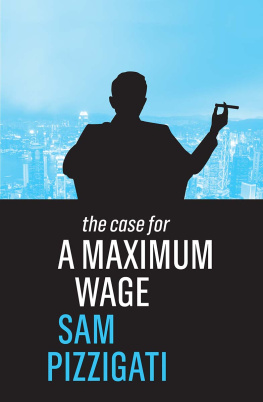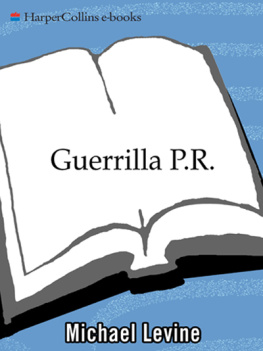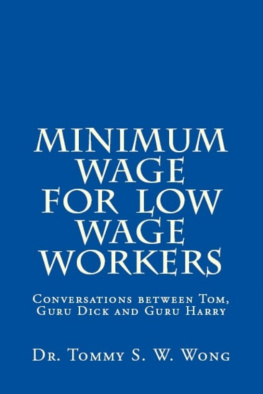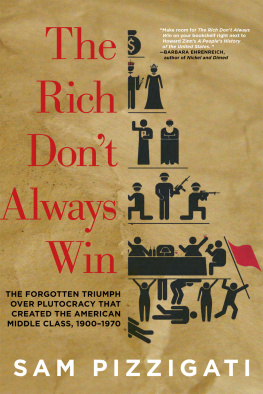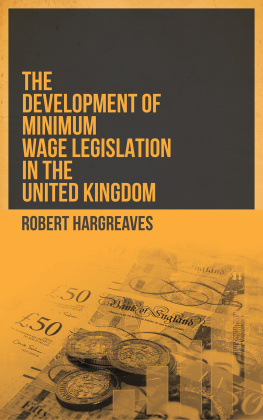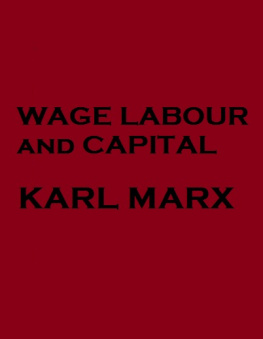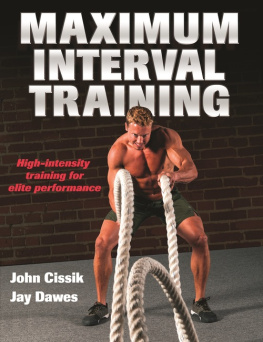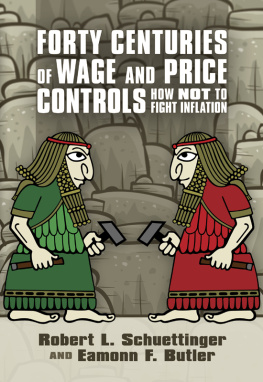Pizzigati - The case for a maximum wage
Here you can read online Pizzigati - The case for a maximum wage full text of the book (entire story) in english for free. Download pdf and epub, get meaning, cover and reviews about this ebook. City: United States., year: 2018, publisher: Polity Press, genre: Politics. Description of the work, (preface) as well as reviews are available. Best literature library LitArk.com created for fans of good reading and offers a wide selection of genres:
Romance novel
Science fiction
Adventure
Detective
Science
History
Home and family
Prose
Art
Politics
Computer
Non-fiction
Religion
Business
Children
Humor
Choose a favorite category and find really read worthwhile books. Enjoy immersion in the world of imagination, feel the emotions of the characters or learn something new for yourself, make an fascinating discovery.
The case for a maximum wage: summary, description and annotation
We offer to read an annotation, description, summary or preface (depends on what the author of the book "The case for a maximum wage" wrote himself). If you haven't found the necessary information about the book — write in the comments, we will try to find it.
The case for a maximum wage — read online for free the complete book (whole text) full work
Below is the text of the book, divided by pages. System saving the place of the last page read, allows you to conveniently read the book "The case for a maximum wage" online for free, without having to search again every time where you left off. Put a bookmark, and you can go to the page where you finished reading at any time.
Font size:
Interval:
Bookmark:

The Case For series
Sam Pizzigati, The Case for a Maximum Wage
Sam Pizzigati
polity
Copyright Sam Pizzigati 2018
The right of Sam Pizzigati to be identified as Author of this Work has been asserted in accordance with the UK Copyright, Designs and Patents Act 1988.
First published in 2018 by Polity Press
Polity Press
65 Bridge Street
Cambridge CB2 1UR, UK
Polity Press
101 Station Landing Suite 300
Medford, MA 02155, USA
All rights reserved. Except for the quotation of short passages for the purpose of criticism and review, no part of this publication may be reproduced, stored in a retrieval system or transmitted, in any form or by any means, electronic, mechanical, photocopying, recording or otherwise, without the prior permission of the publisher.
ISBN-13: 978-1-5095-2495-2
A catalogue record for this book is available from the British Library.
Library of Congress Cataloging-in-Publication Data
Names: Pizzigati, Sam, author.
Title: The case for a maximum wage / Sam Pizzigati.
Description: Cambridge, UK ; Medford, MA : Polity Press, 2018. | Series: The case for | Includes bibliographical references and index.
Identifiers: LCCN 2017048524 (print) | LCCN 2017050835 (ebook) | ISBN 9781509524952 (Epub) | ISBN 9781509524914 (hardback) | ISBN 9781509524921 (pbk.)
Subjects: LCSH: Wages--Government policy--United States. | Rich people--Government policy--United States. | Equality--United States. Classification: LCC HD4975 (ebook) | LCC HD4975 .P27 2018 (print) | DDC 331.2/3--dc23
LC record available at https://lccn.loc.gov/2017048524
The publisher has used its best endeavours to ensure that the URLs for external websites referred to in this book are correct and active at the time of going to press. However, the publisher has no responsibility for the websites and can make no guarantee that a site will remain live or that the content is or will remain appropriate.
Every effort has been made to trace all copyright holders, but if any have been inadvertently overlooked the publisher will be pleased to include any necessary credits in any subsequent reprint or edition.
For further information on Polity, visit our website:politybooks.com
For Pablo, Chaly, and Toms
Ive been writing about inequality and the notion of a maximum wage for almost three decades now. I cant seem to stop. That may be because the societies I know best keep getting more unequal. Or maybe I just enjoy hanging out with egalitarians, most notably my collaborators on Inequality.org.
My thanks to everyone whose ideas and encouragement have shaped this slender volume. A special appreciation to New York labor activist Jeff Vogel and Canadian researcher Jacob David Poulin-Litvak, two indefatigables on all things maximum wage related.
These chapters also owe much of the value they may have to the patient scrutiny of ace readers Nancy Leibold and Carl Luty. My deepest thanks as well to my eminently thoughtful editors at Polity, George Owers and Justin Dyer. And my deepest gratitude, as always, goes to Karabelle. She may not have lived long enough to peruse these pages, but her wisdom and compassion, after nearly a half-century together, remain my rock.
Sam Pizzigati October 2017
Moderation in All Things, Even Income
Most of us shy away from excess. Everything works better, we understand, in moderation. Too much of anything, even essentials for our health and humanity, does us no good. Too much food can leave us dangerously obese. Too much strenuous exercise can break down our bodies. Even too much love can become suffocatingly obsessive.
Excess creates messes. Societies grasp this reality almost instinctively and set limits to keep excess at bay. We limit how fast motorists can drive. We limit how much waste factory owners can dump in our rivers. We limit how much noise our neighbors can make.
But we dont set limits on everything. We do not limit personal income. We have no speed limit on how rapidly the rich can become richer. And they have become richer. Phenomenally richer.
Many of our most compelling numbers on global fortunes come from the annual wealth reports the Credit Suisse Research Institute began publishing in 2010. Midway through 2017, Credit Suisse calculates, the worlds wealthiest 1 percent held 50.1 percent of global wealth, more than the rest of the world combined.
Those who hold truly grand fortunes over $50 million in net worth make up just a tiny fraction of the wealthy who can claim global top 1 percent status. Credit Suisse counts over 148,000 of these ultra-high net worth fortunes, with about half in the United States.
The richest of the ultra rich, the worlds billionaires, now total over 2,000. The least of these billionaires now hold 279,000 times more personal wealth than our planets typical adult.
The activist charity Oxfam has translated the Credit Suisse numbers into some memorable images. In 2009, the group points out, the worlds 380 richest billionaires a cohort small enough to fit into a jumbo jetliner held as much wealth as humanitys poorest half. By 2017, the combined fortunes of just 42 billionaires could offset the entire net worth of the 3.7 billion people who make up the worlds bottom half. These eight could ride comfortably in a standard-sized city-bus.
This top-heavy distribution of the worlds treasure, some maintain, rates as no big deal. Think of all the entertainment value the super rich create, they quip. How could we live without the Instagrams of young wealthy heirs flaunting their Rolexes, Maybachs and pet lions? In one episode, a guest checks in with 200 pieces of luggage, a bride insists on an elephant for her wedding party, and a gentleman of means wants his socks pressed. Were expected to giggle at their vanities.
Most of the world, fortunately, sees vast gaps in income and wealth as no laughing matter. Inequality has become, as Barack Obama observed early in his second term, the defining challenge of our time.
A world in which 1 percent of humanity controls as much wealth as the other 99 percent, Obama added in a United Nations address, will never be stable.
Leading global figures have echoed those sentiments. Pope Francis has labeled inequality the root of social evil. Nobel Peace Prize laureate Muhammad Yunus, the celebrated founder of the microfinance movement, has described the concentration of the worlds wealth as a ticking time bomb.
People worldwide, the Washington, DC-based Pew Research Center has found, share a similar perspective. Pew surveyed 44 nations in 2015. Majorities in all 44 called the gap between rich and poor a big problem facing their countries.
All these anxieties about our economic divides rest upon a veritable explosion of research into inequalitys impact on our daily lives and long-term prospects. Over the last quarter-century, the International Social Science Council reports, the number of studies on inequality-related concerns has increased five-fold.
Much of this new research involves the United States, the worlds most unequal developed nation. In the United States, as elsewhere, inequality endangers almost everything we hold dear. Divorce rates run the highest in American counties where inequality has increased the fastest. US states with income highly concentrated at the economic summit have more carbon emissions and weaker environmental protections. Highly unequal states also have higher incidences of hate crimes.
Font size:
Interval:
Bookmark:
Similar books «The case for a maximum wage»
Look at similar books to The case for a maximum wage. We have selected literature similar in name and meaning in the hope of providing readers with more options to find new, interesting, not yet read works.
Discussion, reviews of the book The case for a maximum wage and just readers' own opinions. Leave your comments, write what you think about the work, its meaning or the main characters. Specify what exactly you liked and what you didn't like, and why you think so.

